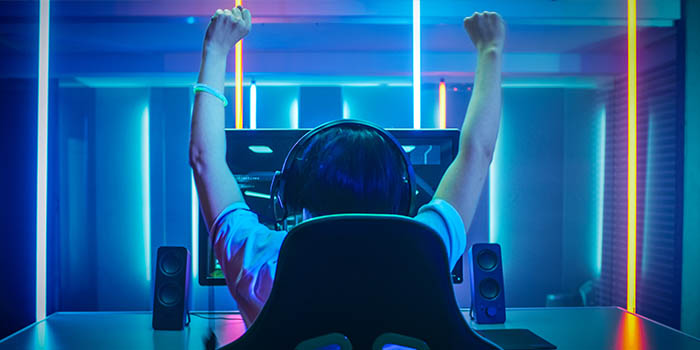The NHS to Treat Video Game Addiction

- After gambling addiction, the NHS is addressing video game disorders
- The NHS will work with individuals as young as 13
- Esports may have contributed to gaming addiction, although it’s unlikely.
Treatments for video game addiction in the UK will now begin, the NHS has announced. Individuals as young as 13 may call via Skype and have a free consultation.
The NHS Will Treat Video Game Addiction
The National Health Service (NHS) is ready to launch its initiative intended at youngsters aged 13 to 25 who suffer from video game addiction. After the World Health Organization (WHO) classified video game addiction as a mental disorder, more efforts have been made to offer adequate help to kids and young adults.
The NHS will hold consultations over Skype and the initiative is coordinated by the Center for Internet and Gaming Disorders. The measure follows a previous announcement in June that children suffering from gambling addiction may seek help at 14 new NHS gambling clinics all across the country.
Previously, the NHS opened The Northern Gambling Service clinic in Leeds designed to tackle gambling addiction among youngsters as well as adults. According to Simon Stevens, Chief Executive at the NHS, the service is responding to all sort of emerging problems in the hopes of prevent spreading:
Health needs are constantly changing which is why the NHS must never stand still – this new service is a response to an emerging problem, part of the increasing pressures that children and young people are exposed to these days.
While acknowledging the stopping power of the NHS and the new initiative, Stevens emphasized on the responsibility that gambling companies had in keeping underage users at bay, and not instilling problematic behavior.
The Essence of Gaming Disorder
A gaming disorder, the WHO said, was a condition in which the desire to play games – and acting on that desire – took precedence over other vital areas of an individual’s life.
Commenting on gaming addiction among youngsters, Dr. Henrietta Bowden-Jones from the Center for Internet and Gaming Disorders, Royal College of Psychiatrists, had the following to say:
Gaming disorder is a mental health condition which can have a hugely debilitating effect on people’s lives, both for patients and their families who can be left feeling utterly helpless in the wake of their loved one’s addiction.
According to Ms. Bowden-Jones, gaming disorder was not to be taken lightly, and that there were people who spent 12 hours a day playing video games. What’s more, in certain countries, including South Korea, gaming has affected a long of the youth who have been spending days playing games.
Some Asian-based developers, such as the tech giant Tencent, have put a fixed number of hours that underage individuals can play.
Why Growing Addicted Now?
Since the early 2010s, video games have been growing substantially. Esports has been one of the main reasons for this growth. Newzoo, an analyst company, estimates that the competitive video gaming industry is going to be worth $1 billion in 2019.
The popularity of the game has pushed some to pursue a career as professional video gamers. Whether esports has contributed to gaming addiction, though, is not clear. For starters, professional video games are tiring.
This means that most people would struggle to keep up a pace and not get disenchanted with the idea. Another popular opinion is that playing video games makes up for a player’s real-life issues. Yet, gaming also has its favorable effect – it may not be advisable to spent months playing, but for some people, that was a much needed palliative at a particular point in their lives.
Mike made his mark on the industry at a young age as a consultant to companies that would grow to become regulators. Now he dedicates his weekdays to his new project a the lead editor of GamblingNews.com, aiming to educate the masses on the latest developments in the gambling circuit.



